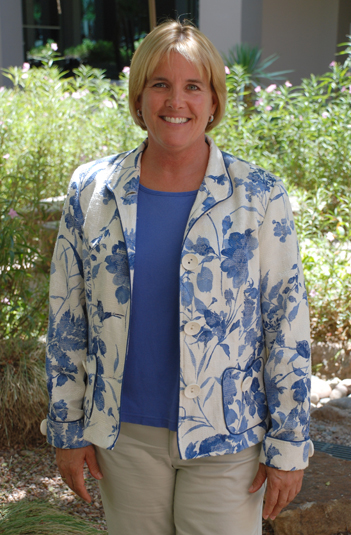Meet Dr. Kathy Kamin of Harmony in Health
September 2, 2009
 Has there been something wrong that you can't put your finger on but you just don't feel right or good? Are you searching for the next step in your life or need to make changes in your relationship or job? Can't figure out what is missing but you aren't satisfied with anything? Dr. Kathy Kamin can help you with your health, your life and get you aligned to move forward in the best direction for you.
Has there been something wrong that you can't put your finger on but you just don't feel right or good? Are you searching for the next step in your life or need to make changes in your relationship or job? Can't figure out what is missing but you aren't satisfied with anything? Dr. Kathy Kamin can help you with your health, your life and get you aligned to move forward in the best direction for you.
She has a special gift to see through the debris of our emotions, our health and mind to get to the bottom and get to work on the most direct path back to health and the wonderful flow of life.
Dr. Kamin helps each patient back to a place of empowerment, where they learn about their body, mind, and emotions. In their process they regain balance and are back on track with a direction toward excellent health.
One of the programs she works with is the HCG weight loss program. She has successfully helped patients normalize and balance their body fat and greatly improve their health. Health conditions such as fibromyalgia, arthritis and lymes disease have been successfully treated with this program although they have nothing to do with weight.
If you have any problem that no one has found a solution for, you have now found the place for answers. Call 480-659-6030 for an appointment.
Photo by Mike Kalsched
Hey, who’s in charge here?
MADISON, Wis. – The job of parenting doesn’t seem to have much in common with being a professional baseball pitcher or golfer.
But a child psychology expert says parents – and their children – could be a lot happier if they focused on the two things that make those professional athletes successful: consistency and discipline.
“One of the things parents struggle with on a daily basis is not being in charge,” says Dr. Katie Watermolen, an assistant professor of psychiatry at UW School of Medicine and Public Health. “And the one thing I always tell parents is not to be afraid to be in charge – set consistent limits, establish clear boundaries and spell out what the consequences will be if the rules are broken.”
Unfortunately, as any parent can tell you, children don’t often make the process easy. Whether it’s a toddler, ‘tween or high school senior, children will always try to push boundaries.
“What I see with children of all ages, is that somewhere along the way, the parents have lost control. Their roles as parents have been taken over by the children or the children have come to believe that they should be on equal footing with their mother and father,” says Dr. Watermolen, who never hesitates to remind the adults: “You're the parent. Don't be afraid to be the parent.”
Taking charge can be challenging, especially if the parent has allowed consistent discipline to slide and chaos to reign. Parents faced with re-establishing authority should be prepared for temper tantrums, and, worse, for being told that they’re hated and the worst parent in the entire world.
It’s okay, says Dr. Watermolen. It’s all part of the sometimes difficult process.
“Work on being extremely clear and concise about the rules, and what the specific consequences will be if those rules are broken. Sit down with your children and talk to them.
Write the rules down if you have to – just be sure they’re clear and that you follow through on them. Children learn very quickly where the cracks in the discipline are, and will use that to their advantage to get their way.”
Some parents worry that there’s a risk in being too strict – that they’ll stifle their child’s individuality by exercising too much control. Dr. Watermolen says the best strategy to avoid that scenario begins with determining what is developmentally realistic to expect from children when it comes to discipline and control. Doing so can also help parents avoid the kinds of situations that often lead to a loss of parental control and frustration.
“If a child can’t sit still for an hour at home, there shouldn’t be an expectation that they can sit still for an hour in a public setting, like a restaurant,” she notes. “Likewise, if a child doesn’t behave at the dinner table at home because they are not expected to, parents should not take children to restaurants and expect good manners. Children need to learn appropriate behavior at home, before they can be expected to demonstrate this behavior in public.”
Child psychiatry experts can often be a good resource for parents to help determine how much responsibility they can expect from their children, and when they should be offering more.
And parents should remember to have realistic expectations for themselves, too.
“As a parent, you’re going to make mistakes,” says Dr. Watermolen. “I tell parents not to beat themselves up when they try to make these decisions about control and discipline, because there isn't any right or wrong answer.
That’s one of the most wonderful and scary things about being a parent – there is no rule book.”
